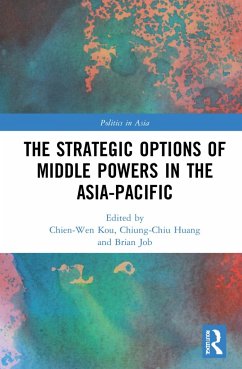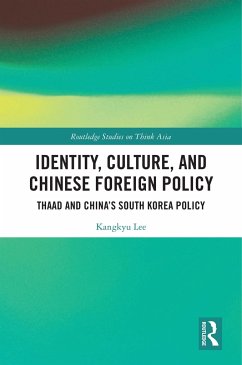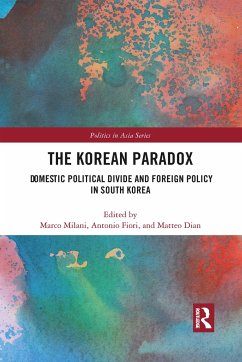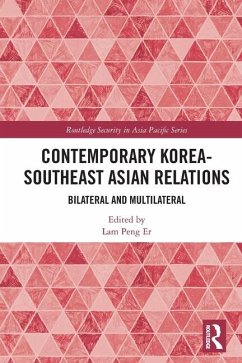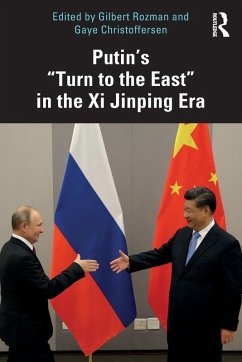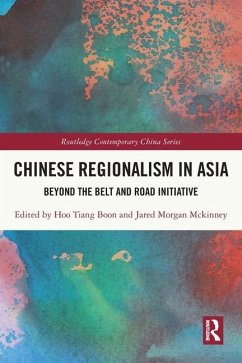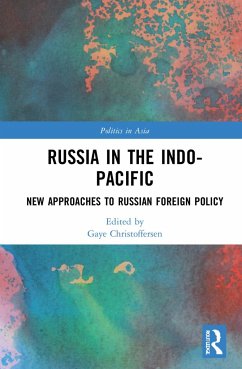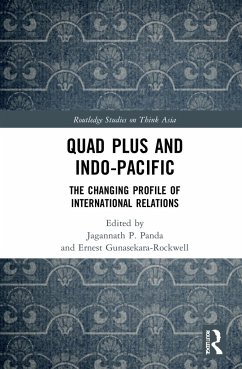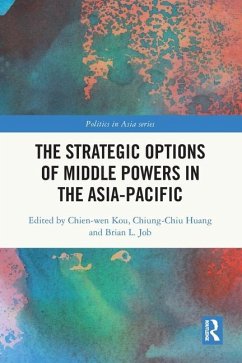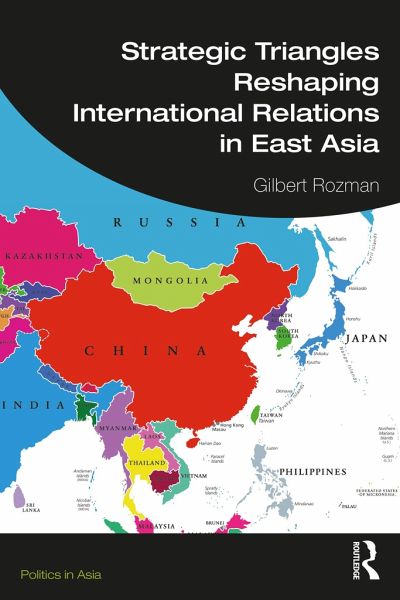
Strategic Triangles Reshaping International Relations in East Asia
Versandkostenfrei!
Versandfertig in 6-10 Tagen
42,99 €
inkl. MwSt.
Weitere Ausgaben:

PAYBACK Punkte
21 °P sammeln!
Rozman shows how East Asia's international relations over three decades can be best understood through the lens of triangles, analyzing relations between the key nations through a series of trilateral relationships.He argues that triangles present a convincing answer to the question of whether we had entered a new era of bipolarity like the Cold War or an age of multipolarity. Triangulation emerged as a dynamic in East Asia in the aftermath of the Cold War and was accelerated in the course of the Xi and Trump administrations. Even as Sino-US competition and confrontation deepened, triangles ha...
Rozman shows how East Asia's international relations over three decades can be best understood through the lens of triangles, analyzing relations between the key nations through a series of trilateral relationships.
He argues that triangles present a convincing answer to the question of whether we had entered a new era of bipolarity like the Cold War or an age of multipolarity. Triangulation emerged as a dynamic in East Asia in the aftermath of the Cold War and was accelerated in the course of the Xi and Trump administrations. Even as Sino-US competition and confrontation deepened, triangles had a substantial presence. East Asian triangles share an unusual mixture of three distinct elements: deep-seated security distrust, extraordinary economic interdependence, and a combustible composition of historical resentments and civilizational confidence. The combination of the three makes the case for triangularity more compelling, Rozman argues. The legacy of communism, the pursuit of reunification on the Korean Peninsula, and moves to expand beyond the US-Japan alliance have all driven the way triangles have evolved. Only as bipolarity intensified in the 2020s was triangularity losing ground. The degree of turnabout is analyzed for all of the cases considered.
Rozman evaluates each key triangle of states in turn and assesses how the relationship impacts the region more widely.
This book provides an essential framework for understanding the current state and trajectory of East Asian international relations, for students and policymakers.
The Open Access version of this book, available at www.taylorfrancis.com, has been made available under a Creative Commons Attribution-Non Commercial-No Derivatives 4.0 license.
He argues that triangles present a convincing answer to the question of whether we had entered a new era of bipolarity like the Cold War or an age of multipolarity. Triangulation emerged as a dynamic in East Asia in the aftermath of the Cold War and was accelerated in the course of the Xi and Trump administrations. Even as Sino-US competition and confrontation deepened, triangles had a substantial presence. East Asian triangles share an unusual mixture of three distinct elements: deep-seated security distrust, extraordinary economic interdependence, and a combustible composition of historical resentments and civilizational confidence. The combination of the three makes the case for triangularity more compelling, Rozman argues. The legacy of communism, the pursuit of reunification on the Korean Peninsula, and moves to expand beyond the US-Japan alliance have all driven the way triangles have evolved. Only as bipolarity intensified in the 2020s was triangularity losing ground. The degree of turnabout is analyzed for all of the cases considered.
Rozman evaluates each key triangle of states in turn and assesses how the relationship impacts the region more widely.
This book provides an essential framework for understanding the current state and trajectory of East Asian international relations, for students and policymakers.
The Open Access version of this book, available at www.taylorfrancis.com, has been made available under a Creative Commons Attribution-Non Commercial-No Derivatives 4.0 license.






